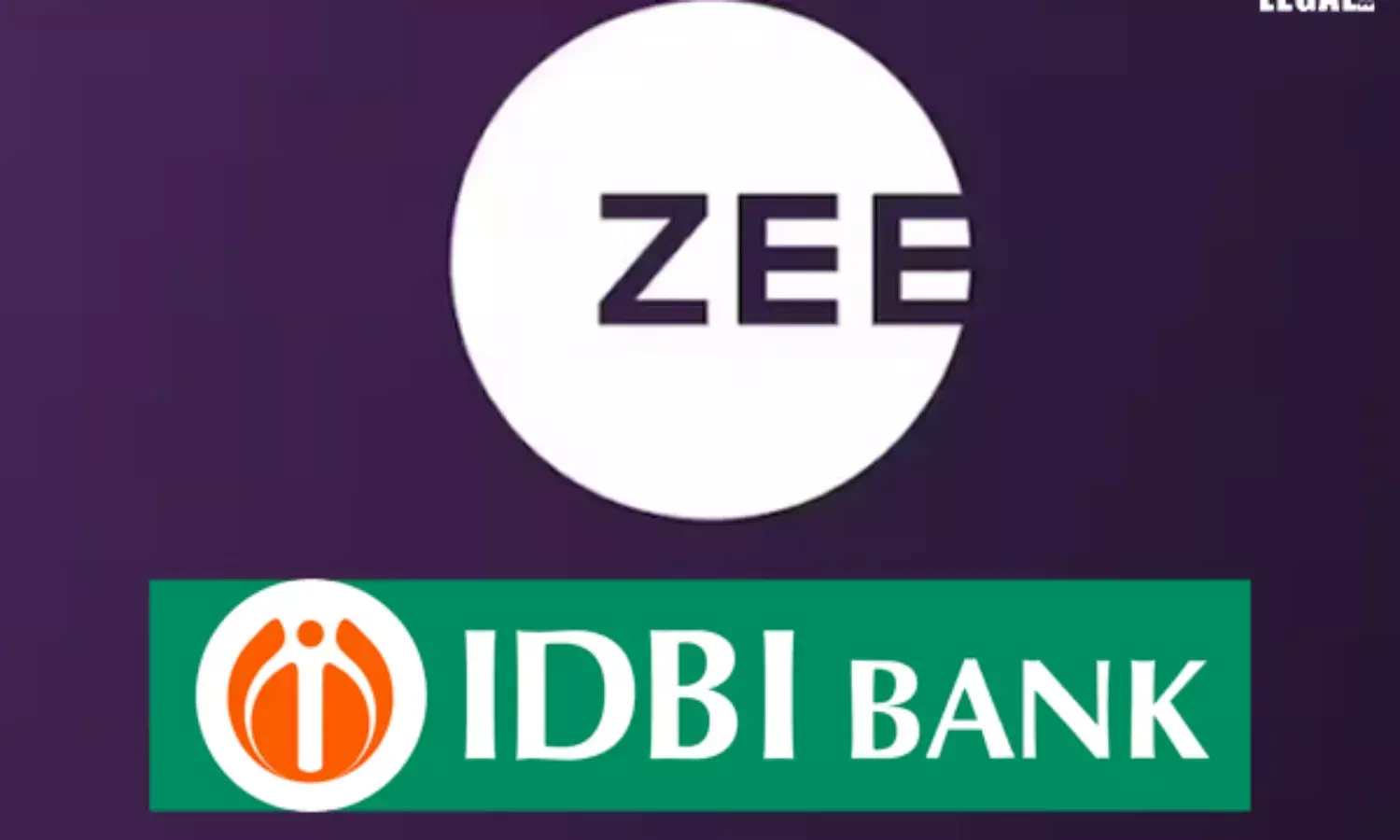NCLT Dismisses IDBI Bank’s Insolvency Plea Against ZEE Entertainment
The National Company Law Tribunal (NCLT), Mumbai, by its coram comprising of Kishore Vemulapalli (Judicial Member) and;

NCLT Dismisses IDBI Bank’s Insolvency Plea Against ZEE Entertainment
The National Company Law Tribunal (NCLT), Mumbai, by its coram comprising of Kishore Vemulapalli (Judicial Member) and Prabhat Kumar (Technical Member) has rejected IDBI Bank’s plea seeking insolvency against media major Zee Entertainment, observing that it was barred under Section 10A of the Insolvency and Bankruptcy Code (IBC).
An application was filed by IDBI Bank limited, the Financial Creditor/Applicant was filed on 14th July, 2021 under Section 7 of the Insolvency and Bankruptcy Code, 2016 (Code) for initiating Corporate Insolvency Resolution Process (CIRP) in the case of Zee Entertainment Enterprises Limited.
Siti Networks (Principal Borrower) had taken a loan of Rs 150 crores for a working capital facility and as per the agreement it had to maintain a Debt Service Reserve Account (DSRA). In DSRA, a credit balance equal to two-quarters interest on working capital was required to be maintained by Siti Networks, at all times till the repayment. However, there was a default.
On 5 March, 2021, IDBI Bank invoked the guarantee provided by ZEEL and called to pay Rs. 61.97 crores with further interest from 18 February, 2021. It claimed an amount of Rs. 149.60 crores in default.
The two principal question that came up for consideration before the NCLT was:
(a) whether the obligation to pay the DSRA shortfall arises only upon issuance of the notice or mere knowledge of default at end of principal borrower a sufficient to hold the corporate debtor in default;
(b) Whether obligation to maintain DSRA exists even after recall of working capital facility.
The bench noted the first demand notice, demanding payment from the Corporate Debtor under the guarantee. The bench further noted that the Corporate Debtor had the knowledge of default at the end of the principal borrower, hence, the NCLT felt that such knowledge implies existence of an obligation on the part of Corporate Debtor and such obligation is a debt under Section 3 (11) of the Code.
Section 3(12) of the Code defines default to “means non-payment of debt when whole or any part or instalment of the amount of debt has become due and payable and is not (paid) by the debtor or the Corporate Debtor, as the case may be”.
However, in this regard, the NCLT observed that, debt and default are two distinct propositions. “Mere existence of debt, which undoubtedly came into being at each incidence of failure to maintain DSRA balance, cannot be equated with existence of default,” added the bench.
Averting to the present case, the NCLT noted that the first demand notice was addressed to the Corporate Debtor on 5 March, 2021 to pay an amount of Rs.61,97,33,612.80 upon receipt of the notice, accordingly, the default qua Corporate Debtor took place on the date when the demand notice dated 5 March, 2021 was served upon it. The Financial Creditor had not claimed that the service of the demand notice was complete on after 24 March, 2021.
Accordingly, bench was of the considered view that the Corporate Debtor committed the default in relation to its obligation to maintain two quarter interest in the principal borrower DSRA account during the period specified in Section 10A of the Code.
As per the provisions of Section 10A of the Code, no application for initiation of corporate insolvency resolution process can be filed in respect of a default that has occurred on or after 25th March, 2020 till 24th September, 2020. By a notification dated 24th September, 2020 the applicability of Section 10A was extended for a further period of three months till 25th December, 2020. Thereafter, by a notification dated 22nd December, 2022 the applicability of section 10A was further extended by a period of three months till 25th March, 2021.
It was elucidated by the bench that Section 10A bars absolutely and forever, the filing of any application under Sections 7, 9 and 10 of the Code, for defaults committed on or after 25th March, 2020 up to 25th March, 2021.
“This bench finds that debt the financial Creditor is not clear what is recoverable from the Corporate Debtor and the claim of exorbitant amount, which are unsustainable even in terms of guarantee agreement, leads to an inference that the present application is in realm of recovery than an attempt to seek the resolution of the Corporate Debtor. It is trite Law that, the proceedings under the Code are meant for resolution of defaulting corporate debtor and not for determination of what is due from the corporate debtor,” the NCLT affirmed.
Having said so, the bench refrained from deciding on the issue whether obligation to maintain DSRA exists even after recall of working capital facility.
Accordingly, the NCLT dismissed the application.

